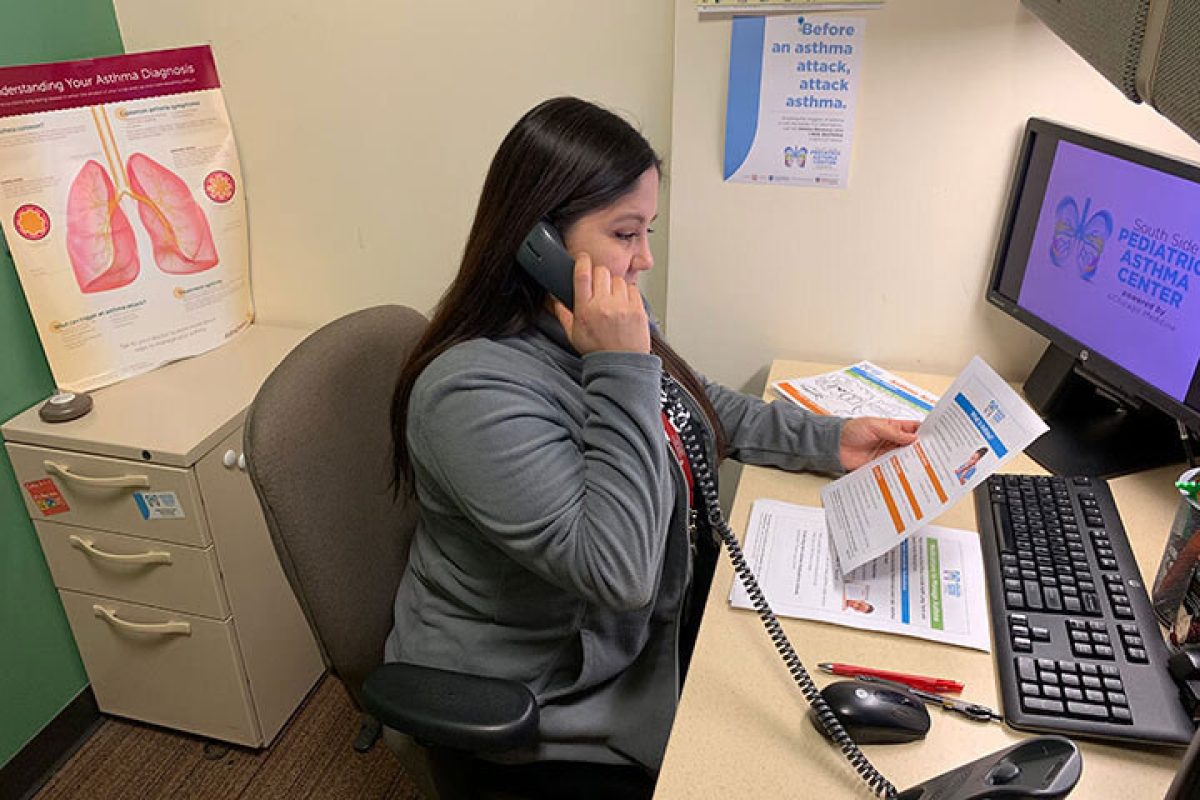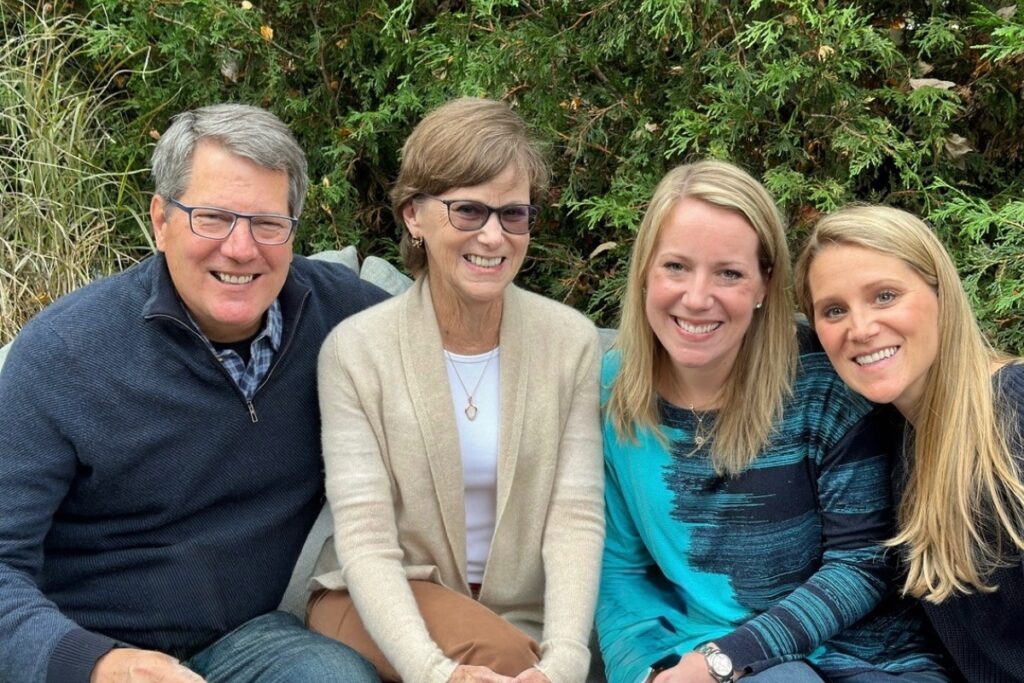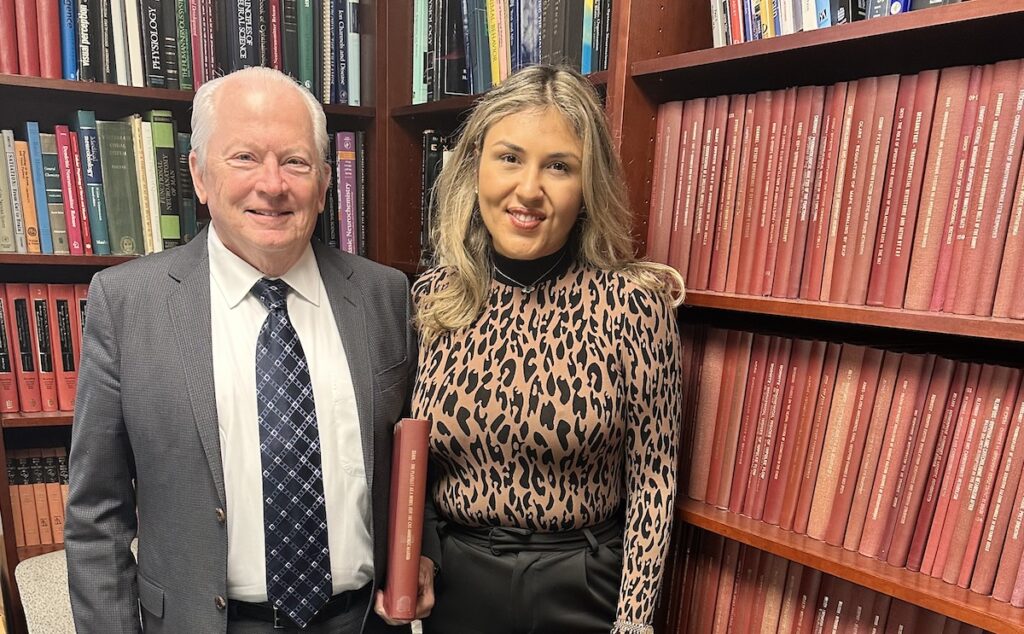Imagine a child struggling to breathe. The child is wheezing and coughing—making it difficult to participate in outside activities and attend virtual school classes. In some cases, the child may even need to be hospitalized.
This child is living with uncontrolled asthma—a condition characterized by an inflammation of the bronchial tubes that causes difficulty breathing and shortness of breath. Unfortunately, there is no cure for asthma, but it can be controlled with early and sustained treatment, and education.
More than 5.5 million children under the age of 18 are struggling with asthma in the United States, according to the Centers for Disease Control and Prevention. Among these, Black children living in inner-city communities are disproportionately affected. On Chicago’s South Side, which comprises predominately Black communities, asthma rates eclipse the national average, underscoring the need for education and community outreach.
Thanks to the support of the Coleman Foundation and private donors, the South Side Pediatric Asthma Center (SSPAC) was created in 2017 to reduce the burden of living with asthma on children and families. Since its inception three years ago, hospitalizations for children with asthma on the South Side decreased by 56 percent as did the amount of times children needed their rescue medication to breathe.
“The South Side Pediatric Asthma Center means so much for children living with asthma,” said. B. Louise Giles, MD, a pediatric pulmonologist and program director of SSPAC. “It brings joy to children touched by the program by helping manage their asthma so they can participate in school and outside activities without struggling to breathe.”
SSPAC is a partnership between health institutions on the South Side that seek to improve the outcomes for children with asthma through standardized asthma education and access to resources. The center provides a cadre of community health workers—trusted ambassadors—to help families increase their understanding of the condition through education about medications, signs and symptoms, and environmental triggers such as indoor and outdoor allergens.
The program’s partnership includes UChicago Medicine’s Urban Health Initiative, UChicago Medicine Comer Children’s Hospital, La Rabida Children’s Hospital, Friend Health Center, St. Bernard Hospital, Beloved Community Wellness Center, and Chicago Family Wellness Center.
Since children do not receive care through only one hospital, the collaboration ensures that children receive the same messaging about asthma care in educational materials throughout the community, Dr. Giles said.
Through the support of its donors, the program hosts asthma education summits to bring together healthcare providers, community members, and schools to share information. An asthma resource line is also available to help determine appropriate resources for families.
With an additional $200,000 grant in 2020, the Coleman Foundation has helped the SSPAC’s community health workers to continue to serve patients during COVID-19 through telemedicine and provided technology, such as smartphones and computers, to make visits possible for families during this difficult time. The grant also provided for food, housing, and transportation support for families in need, as well as continued asthma education to healthcare providers and parents through the ECHO-Chicago program. To date, throughout the SSPAC’s history, the Coleman Foundation has donated more than $1 million for asthma care.
The continued support for SSPAC is essential since the consequences of uncontrolled asthma include school and work absenteeism, trips to the emergency room, and, in extreme cases, death, Dr. Giles said.
Coleman Foundation board member Daniel Wanzenberg said the foundation is committed to serving the highest needs of the city of Chicago and improving the lives of its residents.
As an adult living with asthma, Wanzenberg said he understands what it’s like to be sidelined by uncontrolled asthma and the impact that the SSPAC has on children by allowing them the opportunity to attend school and participate in activities, without the fear of severe asthma attacks or hospitalization.
“The model of a community health worker program empowers children and families, and helps them manage their asthma to live full lives,” he said.
In the future, Dr. Giles said she hopes the SSPAC will employ more community health workers, expand programming for asthma care, and hopefully one day, add an ambulatory clinic on the South Side to better meet the needs of patients and families.
“By bringing the clinic and health providers to the community, we will not only improve outcomes but be able to identify those who need the care the most,” she said “Our most pressing need at SSPAC is to further engage children and families in the South Side who are impacted with asthma, but are not in the care of an asthma specialist.”
If you are interested in learning more about the SSPAC, go here. If you are interested in learning about additional giving opportunities for SSPAC, contact Ashli Owens.
Published January 2021




